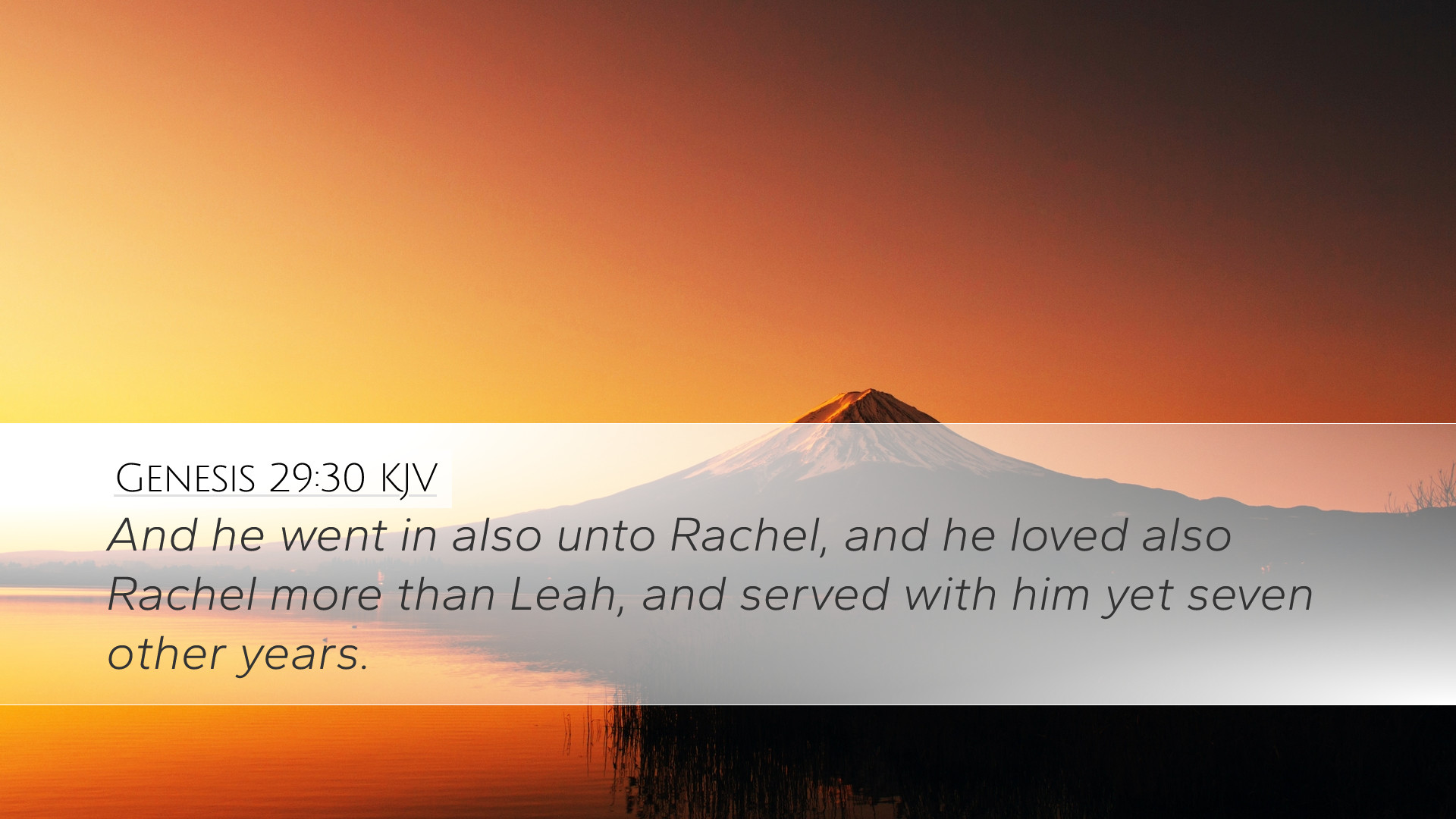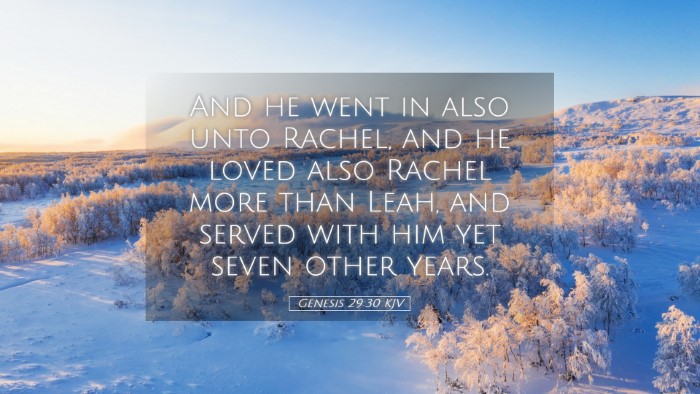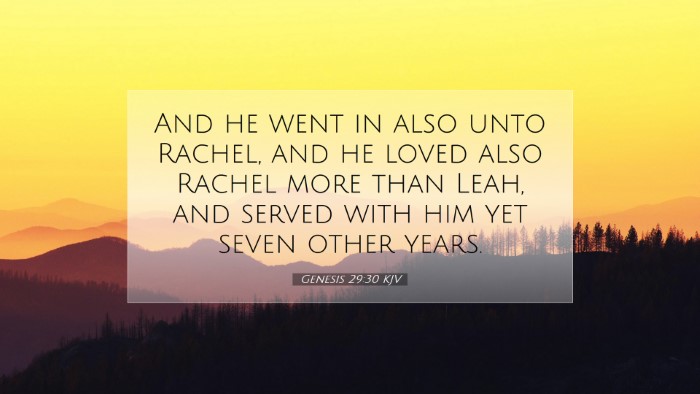Commentary on Genesis 29:30
Verse Text: "And he went in also unto Rachel, and he loved also Rachel more than Leah, and served with him yet seven other years." (Genesis 29:30, KJV)
Introduction
This verse marks a significant moment in the biblical narrative of Jacob, Rachel, and Leah. The favoritism displayed by Jacob towards Rachel and the ensuing emotional turmoil in the family dynamics set the stage for profound lessons on love, jealousy, and God's sovereignty in human relationships. This commentary draws insights from public domain commentaries including those of Matthew Henry, Albert Barnes, and Adam Clarke.
Contextual Analysis
The entire account in Genesis 29 details Jacob's journey to find a wife, a significant cultural and theological theme throughout Scripture. Upon arriving in Haran, Jacob encounters Rachel at a well, and the narrative quickly shifts towards Jacob's love for her, illustrated through his labor of seven years to marry her. The dynamics of his relationships with both Rachel and her sister Leah provide a rich field for theological reflection.
Key Themes
- Favoritism and its Consequences: Jacob's preference for Rachel over Leah becomes a source of strife and rivalry. Matthew Henry remarks that this favoritism often leads to family conflicts, reflecting on how God's people can fall into the same patterns of sin today.
- Divine Sovereignty: Despite the imperfections displayed by Jacob and his family, God remains sovereignly in control. Albert Barnes notes that God's purposes are achieved through human failures, emphasizing His ability to work through our flawed relationships for a greater good.
- The Complexity of Love: The love Jacob feels for Rachel is contrasted with Leah's longing for affection, raising questions about how love is understood and expressed. Adam Clarke reflects on the complexities of love and marriage, showing the challenges faced by those in polygamous relationships as highlighted in this text.
Theological Reflections
At the core of this passage lies the theological reflection on human relationships and divine intention. Jacob’s actions, while deeply rooted in cultural norms of his time, invite scrutiny regarding the nature of love and commitment.
1. The Nature of Love
Jacob's love for Rachel, while romantic, is also problematic as it leads to neglect of Leah. This dichotomy echoes throughout scripture, emphasizing the ideal of agape love, which seeks the best for others regardless of personal feelings. Henry notes that love blossomed between Jacob and Rachel, yet this love ultimately created a rift within the family unit.
2. God’s Purpose through Imperfection
God's providence overshadows the personal strife between Leah and Rachel. Barnes observes that though Jacob preferred Rachel, Leah was part of God's plan for the lineage of Israel. This serves as a reminder that God can turn our flawed decisions into fulfilling His promises, thus underscoring His grace.
3. The Human Condition
The rivalry between the sisters is emblematic of the struggles inherent in human relationships. Clarke points out that the emotional heartache Leah experiences reflects the broader human condition, marked by a desire for acceptance and love. This interplay of desire and rejection remains relevant today, offering insight into the psychological and spiritual aspects of human interactions.
Personal Application
For pastors, theologians, and students, the tension presented in Genesis 29:30 invites self-examination and reflection on personal relationships. Here are a few guiding questions:
- How do we express love in our relationships? Are there behaviors that reflect favoritism or neglect?
- In what ways can we acknowledge God's sovereignty amid our conflicts? How can we trust in His plan when our circumstances seem chaotic?
- What can we learn from Jacob, Rachel, and Leah about the complexity of human emotions? How can we apply these lessons to foster healthier relationships?
Conclusion
Genesis 29:30 encapsulates a multifaceted scenario steeped in familial love, rivalry, and divine purpose. The insights drawn from Henry, Barnes, and Clarke allow us to grapple with the complexities of relationships as illustrated in Scripture. Through careful reflection on this verse, we can gain a deeper understanding of how to navigate love, jealousy, and the intricate web of human emotions in light of God’s overarching plan.


